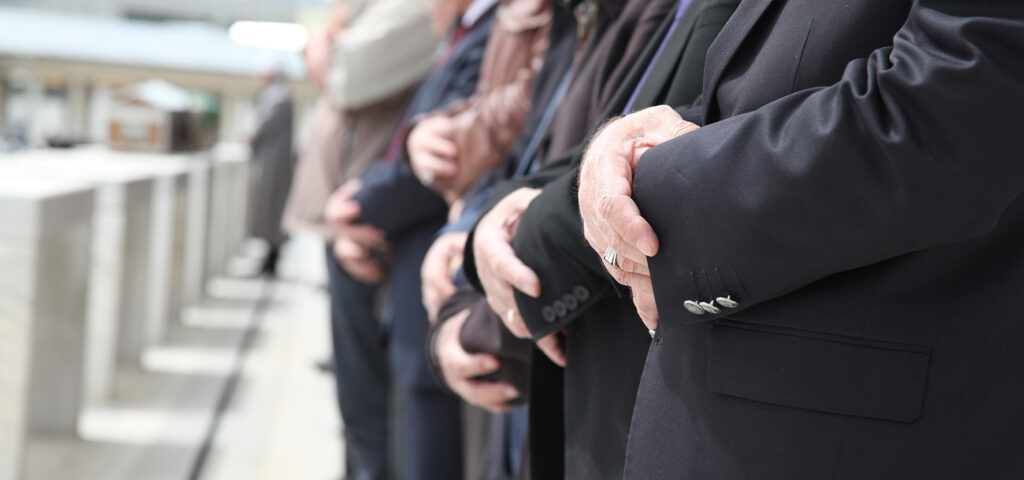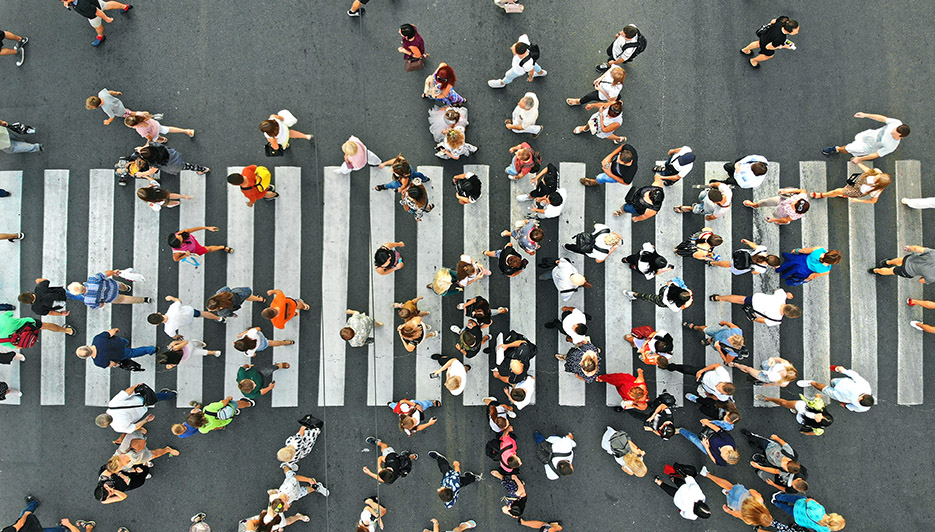A final resting place – Islam
A final resting place – Islam
The COVID-19 pandemic has forced religions across Europe to change their practices in order to adapt to the new normal. However, long existing inequalities faced by the Islamic communities of across the continent have meant that Europe’s Muslims have faced even greater trauma and difficulty in giving their loved ones a burial in accordance with their faith and desires.
In the first part of this two-stage article , we looked at how Christian funeral practices have been affected by the coronavirus pandemic. However, when we turn to looking at how the Islamic community of Europe has been affected by the pandemic it is clear that although there are many similarities, Muslims have had a series of extra challenges in following funeral practices that are key to their faith. At the same time as facing similar obstacles with regards to bans of mass gatherings, Muslims in Europe have also faced more specific problems which have caused extra trauma for those wishing to find a peaceful resting place for members of their community.
Understanding the specific issues that European Muslims have been faced with is essential for all observers and authorities as the Islamic community in 2016 represented 5% of the entire population of the continent, a number which is expected to increase in the coming decades.[1] Therefore, this article will aim to highlight some of the additional problems Muslims have experienced in trying to observe their religion’s practices with regards to the burial of members of the faith.
Unfulfilled wishes
One of the most significant and troubling problems caused by the coronavirus pandemic for the Islamic community has been the imposition of border restrictions and limitations to travel. These limitations have made it significantly harder for the families of the deceased to fulfil their loved ones’ desire to have their body repatriated to their homeland. Adding to this problem is the fact that in the Islamic faith it is of great importance that a body is buried within 24 hours of its death.[2] Therefore, for Muslims who had planned to have their bodies repatriated, often to their country of birth, the limitations caused by the pandemic have made this nearly impossible, especially within such a close time limit.
One tragic example of this problem was in the United Kingdom, where the bodies of 18 Turkish Cypriots laid in a mosque for weeks following their deaths due to delays to repatriation caused by travel restrictions imposed by the Northern Cypriot authorities. The agonising wait had left families saying they were ‘devastated’ that their loved ones’ wish to be repatriated had been delayed for so long. [3] Meanwhile, whilst in the case above the bodies of the deceased were kept until they could be repatriated, many other Muslim families across the continent have instead opted to give up on their wishes for repatriation and to bury their loved ones in their adopted lands. This has led to both a heavy emotional and financial impact for these families.
One example of this comes from the Netherlands, where the families of Muslims who had wished to be repatriated to Morocco were forced instead to look for spaces in Dutch cemeteries. Hanana Abdellaoui explained to Yabiladi that she had been forced to agree to bury her 80-year-old father in the town of Nuenen after it became clear that his dream of being buried in his homeland would not be possible. As well as the emotional and sentimental cost of this, there were also significant financial implications. First, her father had spent many years paying premiums to ensure that repatriation would be possible after his death. And secondly, many cemeteries in the Netherlands do not offer ‘eternal graves’. This has meant that Muslim families have had to pay between 8,500 to 14,000 euros to ensure their loved one is buried in a permanent grave, something which is considered essential from an Islamic religious perspective.[4]
No place to rest
Whereas in the Netherlands these issues have been traumatic for families, there were many reports from other European countries of the dual phenomenon of the lack of repatriation and the increase in deaths leading to shortages in the numbers of suitable plots for Islamic burials. In the Islamic faith it is considered essential that the body of the deceased must face towards Mecca.[5] Given that this is not a consideration in Christianity, it has meant that in historically Christian-majority countries, public cemeteries often do not have the correct types of plots for an Islamic burial to be undertaken.
During April 2020, an article in the French newspaper Libération told the story of one man whose father’s body had not been able to be repatriated to Algeria. Upon accepting that his father would not be returned to be buried in his homeland, the son, Mohammed, contacted various local municipalities which told him they would be unable to offer him a burial plot which would accord with Islamic values. This meant the family were forced to wait a number of days to find a final resting place for the deceased, something which the president of the French Council of the Muslim faith (CFCM) described as ‘unbearable’ for loved ones.[6] The lack of burial spots also caused great trauma for Muslims in Italy, where the Imam Abdullah Tchina of the Milan Sesto mosque told AFP that the pain of the pandemic had been ‘deepened’ for families because they had ‘not been able to find a place to bury their dead’.[7] Likewise in Spain, Muslims faced problems in locating an apporiate burial plot, especially in the region of Catalonia, where the country’s largest Muslim population resides. However, in a sign of hope that could serve as an example to both authorities and communities in other parts of the continent, the city of Reus announced that they would make every effort to adapt the local cemetery facilities to the needs of the Islamic community. This led them to succeed in a plan to allocate further spaces and be able to undertake 26 Islamic burials, something which was greatly appreciated by the families of Muslims who had passed away over the spring and summer of 2020.[8]
Lessons to be learnt
As has been seen in this article, as well as facing the social and psychological challenges which the coronavirus has brought to all citizens of Europe, members of Islamic communities across the continent have faced a set of specific barriers in being able to carry out the burial practices which are integral to their faith.
As the second wave continues to spread across the continent, it will be hoped that two differences will lessen the trauma faced by the Islamic community regarding burials. On the one hand, it would be reasonable to expect that there will be fewer problems with foreign countries imposing new limitations on repatriation. On the other, European countries have had time to better prepare for being able to offer more plots dedicated to Islamic burials. However, the pandemic has also demonstrated the fact that many European authorities have much work to do to ensure that Muslims will be able to follow their traditions with regards to burials to the same extent as all other citizens. This will be true even if the pandemic passes, given that the Muslim population in the continent is expected to rise to 7% by 2030.[9]
To conclude, in these two articles we have seen that the question of funerals have been impacted in both the Islamic and Christian faiths is a demonstration of the way in which religion and religious practices continue to be relevant in modern European society. This role has had to be adapted due to the coronavirus, a process which has sometimes been challenging or even traumatic, but has also illustrated how religions continue to be important even to those who may not practice them regularly.
Learn more about religion and society on the EARS Dashboard.
[1] The Future of the Global Muslim Population | Pew Research Center
[2] Coronavirus: Bodies held in mosque awaiting repatriation
[3] Coronavirus: Bodies held in mosque awaiting repatriation
[4] Forced to perform burials in the Netherlands, Moroccans on the hunt for eternal graves
[5] Coronavirus : le chemin de croix des familles musulmanes pour enterrer leurs morts
[6] Coronavirus : le chemin de croix des familles musulmanes pour enterrer leurs morts
[7] Italy’s Muslims cope with burial space shortage in pandemic
[8] Cementerio de Reus ha llevado a cabo hasta ahora 26 enterramientos de musulmanes
[9] The Future of the Global Muslim Population | Pew Research Center






